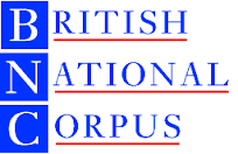British National Corpus
|
The British National Corpus has long been the gold standard for British English, providing representative data about grammar (in its widest sense) and vocabulary (in its widest sense) in a representative cross-section of many fields (domains) and modes (mediums). Work on building the corpus began in 1991, and was completed in 1994. It is a snapshot of British English in the late 1980s and early 1990s and is therefore a synchronic corpus.
At the BNC homepage, you can read about its history, its composition and other background information. There is also a Wikipedia page. No new texts have been added to the BNC since then, which on one hand means that its data is stable and the same search will always yield the same data. On the other hand, it contains no new coinages since that time. Recent linguistic accretions such as friend as a verb, as in ‘a social networker friends another social networker’ are not represented. And email gets a mere 34 hits, the same as Luddite, coincidentally. Even the word website is not in the BNC, although web site is – once – in its c.100 million words. |
Tools that use the British National CorpusJust the WordEnglish Corpora (BYU)Sketch Engine |


